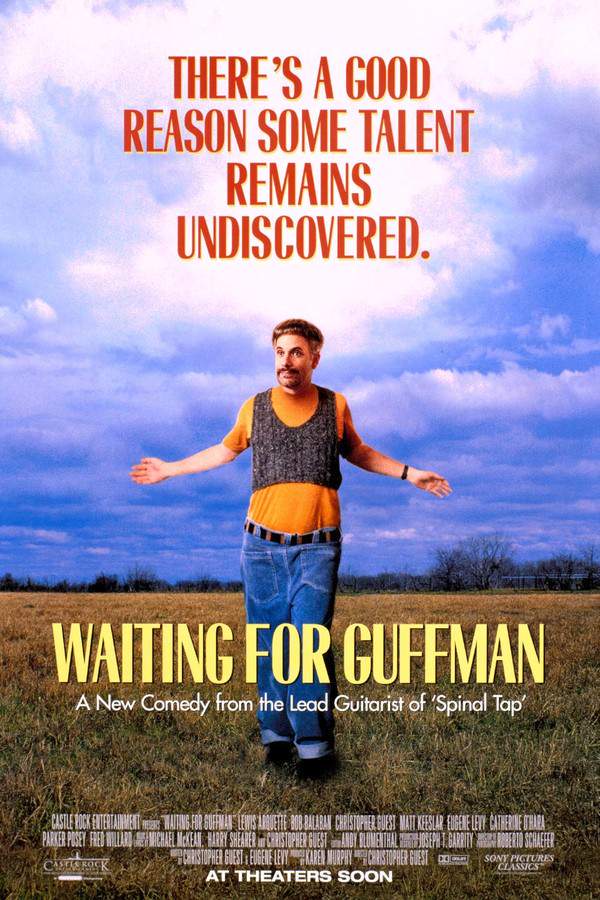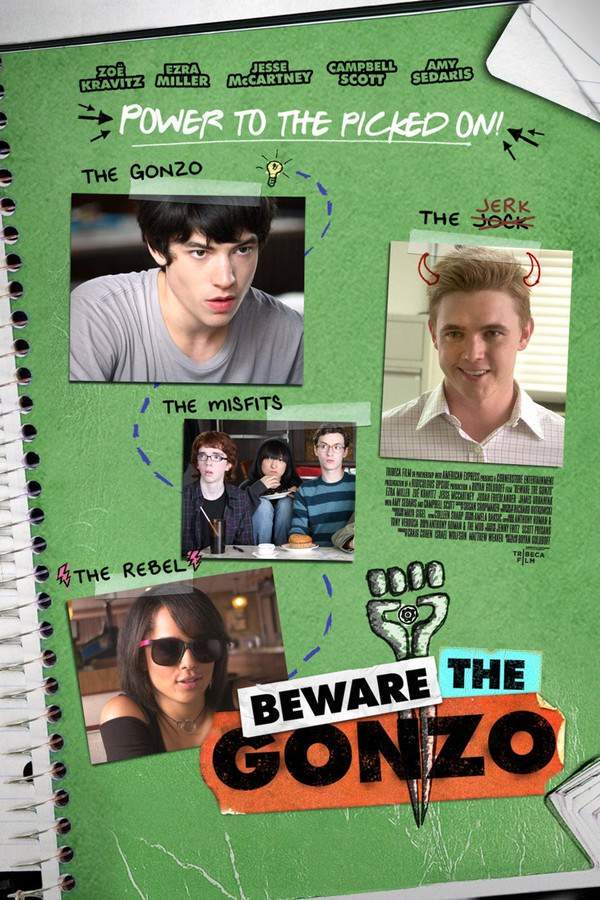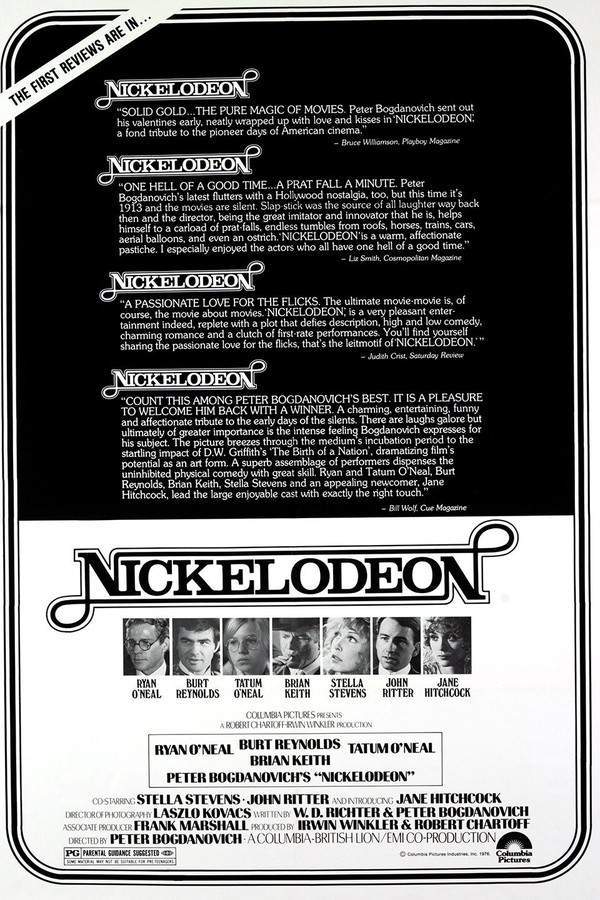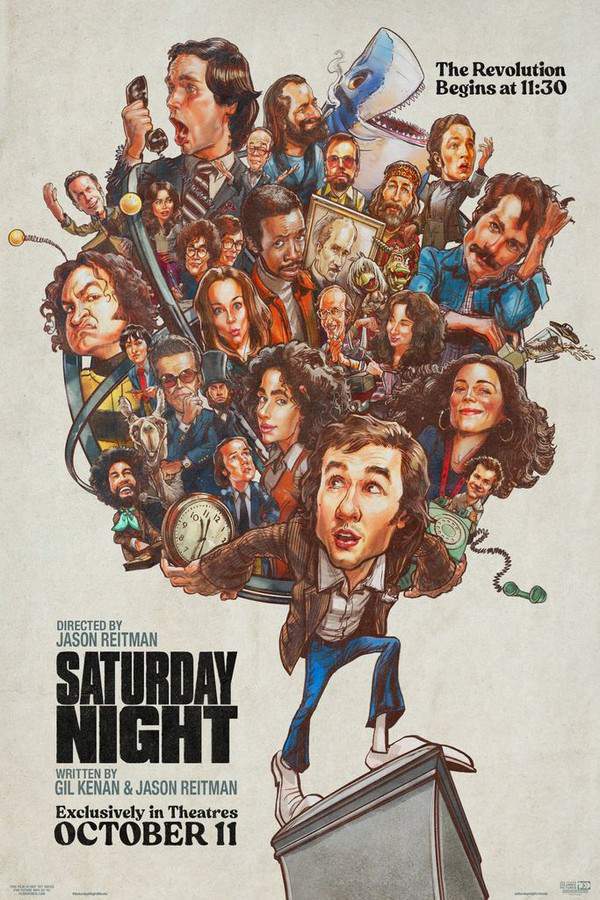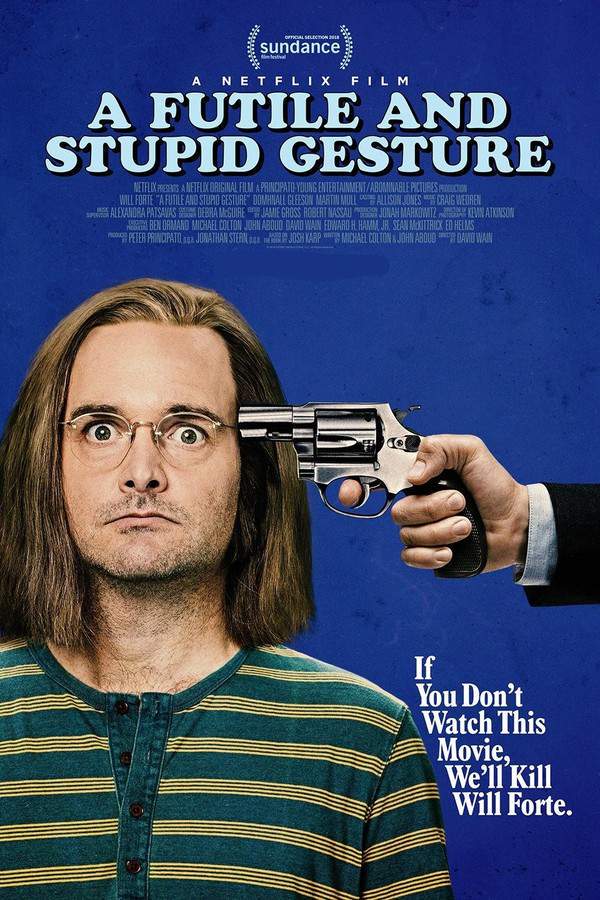
A Futile and Stupid Gesture 2018
Made by

Netflix
Test your knowledge of A Futile and Stupid Gesture with our quiz!
A Futile and Stupid Gesture Plot Summary
Read the complete plot summary and ending explained for A Futile and Stupid Gesture (2018). From turning points to emotional moments, uncover what really happened and why it matters.
The film presents a vivid exploration of the pivotal years between 1964 and 1980, beginning with the celebration of Douglas Kenney (Will Forte) and Henry Beard (Domhnall Gleeson) as they rejoice in the success of their book, Bored of the Rings, alongside their fellow colleagues from the Harvard Lampoon. Upon their graduation from the prestigious university, Kenney convinces Beard to abandon his path to law school and instead embark on creating a monthly publication, National Lampoon, which rapidly becomes synonymous with irreverent comedic commentary. While Kenney emerges as the outlet’s main comedic voice, Beard’s sharp business instinct provides vital guidance as the magazine begins its ascent.
With the financial backing of Matty Simmons, the writers dedicate themselves to generating uproariously humorous content even while immersed in a whirlwind of parties and illicit substances. Although the magazine faces initial challenges in establishing its presence, impending legal action from big players like Disney and Volkswagen catalyzes a transformative moment, solidifying National Lampoon’s role in revolutionizing comedic narratives through its fearless satire and parody.
As Kenney grapples with overwhelming burnout, he departs abruptly for nine months, leaving a cryptic message for Beard. Nevertheless, Beard manages to navigate the magazine through this turbulent period, eventually orchestrating a lucrative buyout from Simmons alongside Kenney. However, as stress and dissatisfaction mount, Beard decides to cash in his stake and leave the publication behind.
The influence of National Lampoon soon extends into the realm of radio with an hour-long show, showcasing prominent comedic talents such as Chevy Chase, Bill Murray, and Gilda Radner. Eventually, Lorne Michaels acquires the entire operation and melds it into the fabric of Saturday Night Live. Not to be outdone, special magazine editions feature biting critiques of high school yearbooks, further solidifying its cultural impact.
As Kenney pivots toward the film industry, he writes the groundbreaking Animal House in 1978, which catapults him to fame. However, the high of success is soon overshadowed by a devastating addiction to cocaine. Amid escalating conflicts with studio executives, he pens Caddyshack, yet soon finds himself disillusioned and overwhelmed, culminating in a humiliating press conference where his struggles become all too apparent.
With the decline of National Lampoon, Kenney, Beard, and Chris Hoffman decide to sell their cherished publication to Simmons’ Twenty First Century Communications. This crucial decision marks a watershed moment for Kenney, whose battle with cocaine addiction spirals into chaos, silencing the flame of creativity that once burned brightly within him.
In a desperate attempt to support his friend, Chevy Chase takes Kenney on a restorative trip to the sun-drenched beaches of Hawai’i, hoping to guide him through the treacherous path of recovery. Sadly, Kenney’s inevitable relapse leads him into a profound despair.
The tragic climax occurs in 1980, when Kenney’s lifeless body is discovered at the bottom of a Hawai’ian cliff, his belongings eerily arranged atop the edge—a haunting reminder of life’s fragility.
In a surreal twist, Kenney’s narrative returns to the forefront, this time infused with indignation as he observes the mourners at his funeral. Displeased with their display of grief, Kenney acknowledges that although his life ended too soon, his legacy continues through the sharp wit and creativity emblematic of National Lampoon.
The film wraps with Beard lightening the somber mood of the wake, igniting a lively food fight that harkens back to their carefree days at Harvard Lampoon. This moment blurs the lines between life and death, causing us to reflect on the lasting impact of humor amidst the specter of mortality.
A Futile and Stupid Gesture Timeline
Follow the complete movie timeline of A Futile and Stupid Gesture (2018) with every major event in chronological order. Great for understanding complex plots and story progression.
Celebration of Success
In 1964, Douglas Kenney and Henry Beard celebrate the success of their book 'Bored of the Rings' alongside colleagues from the Harvard Lampoon. This event symbolizes the beginning of their comedic journey and the formation of a unique friendship centered around humor and creativity.
Creating National Lampoon
Upon graduating from Harvard, Kenney convinces Beard to forgo law school to launch 'National Lampoon'. This decision ignites a new chapter in their lives, as they aim to produce a publication that radiates irreverent comedic commentary.
The Rise of National Lampoon
With financial backing from Matty Simmons, National Lampoon rapidly gains momentum, thanks to the duo's dedication and creative output. Although they initially face challenges, their commitment to humor eventually solidifies the magazine's presence in the comedy landscape.
Legal Challenges
As National Lampoon grows, it attracts legal notice from major corporations like Disney and Volkswagen. This fight against significant players propels the magazine into the spotlight, reinforcing its role in changing comedic narratives with fearless satire.
Kenney's Abrupt Departure
Overwhelmed by burnout, Kenney abruptly steps away from the magazine for nine months, leaving Beard to manage the publication. Despite the turmoil, Beard’s leadership helps guide National Lampoon through this challenging period.
Lucrative Buyout
Eventually, Beard orchestrates a lucrative buyout of National Lampoon from Simmons in collaboration with Kenney. This deal provides the financial stability they need, however, it also marks the beginning of increased stress and dissatisfaction within the team.
Expansion into Radio
National Lampoon expands its influence into radio with a new hour-long show showcasing talents such as Chevy Chase, Bill Murray, and Gilda Radner. This venture contributes to the magazine's cultural significance, cementing its place in the comedic landscape.
Kenney Writes Animal House
In 1978, Kenney writes the groundbreaking film 'Animal House', which catapults him into fame. This success is a high point in his career, representing a significant achievement and influential shift towards filmmaking.
Struggles with Addiction
Despite the successful release of 'Animal House', Kenney's struggles with cocaine addiction begin to spiral out of control. His increasing battle with addiction ultimately overshadows his professional life and creates distance between him and his colleagues.
Humiliating Press Conference
Amid rising conflicts with studio executives, Kenney holds a press conference where his addiction struggles become evident. This moment marks a low point in his career as he faces the reality of his situation in front of the media and fans.
Selling National Lampoon
In a significant move, Kenney, Beard, and Chris Hoffman decide to sell National Lampoon to Simmons’ Twenty First Century Communications. This decision represents a pivotal change not only for the magazine but also in Kenney's tumultuous life.
Trip to Hawai'i
In a gesture of support, Chevy Chase takes Kenney on a restorative trip to the beaches of Hawai'i in hopes of guiding him towards recovery. Unfortunately, the trip does not lead to the hoped-for healing and Kenney's struggles continue.
Kenney's Tragic Death
The tragic climax occurs in 1980 when Kenney's body is found at the bottom of a Hawai'ian cliff. His belongings eerily arranged at the top serve as a haunting reminder of the same life that was once vibrant with creativity.
Kenney's Funeral
In a surreal turn, Kenney observes his own funeral and expresses discontent with the mourners' display of sorrow. He reflects on his life and acknowledges that despite his untimely death, his legacy continues through the enduring humor of National Lampoon.
Food Fight at the Wake
At the wake, Beard lightens the somber atmosphere by initiating a food fight, reminiscent of their carefree days at Harvard Lampoon. This moment not only serves as a tribute to their friendship but also symbolizes the enduring nature of humor in the face of loss.
A Futile and Stupid Gesture Characters
Explore all characters from A Futile and Stupid Gesture (2018). Get detailed profiles with their roles, arcs, and key relationships explained.
Douglas Kenney
Douglas Kenney is a complex yet vibrant character whose quest for creative fulfillment leads him down both triumphant and tragic paths. His brilliant comedic voice becomes overshadowed as he grapples with his addiction, ultimately highlighting his vulnerability beneath the surface of success.
Henry Beard
Henry Beard is an astute businessman and a loyal friend to Kenney. His sharp instincts and dedication to the magazine's success bolster Kenney's creativity, yet he also grapples with the weight of Kenney’s struggles, showcasing his own internal conflicts as they transform from carefree college days to chaotic adulthood.
A Futile and Stupid Gesture Settings
Learn where and when A Futile and Stupid Gesture (2018) takes place. Explore the film’s settings, era, and how they shape the narrative.
Time period
1964-1980
The time period is marked by significant cultural shifts and the rise of new media forms. This era witnesses profound changes in comedy, epitomized by the emergence of *National Lampoon*, which challenges societal norms through satire and parody.
Location
Harvard, Hawai'i
Harvard is a prestigious university known for its rich history and academic excellence, serving as the backdrop for the birth of comedic revolution in *National Lampoon*. Hawai'i, celebrated for its stunning beaches and vibrant culture, becomes a locale of profound significance as it serves as the setting for Kenney's tragic journey and final moments.
A Futile and Stupid Gesture Themes
Discover the main themes in A Futile and Stupid Gesture (2018). Analyze the deeper meanings, emotional layers, and social commentary behind the film.
🎭
Comedy and Tragedy
The film explores the duality of comedy intertwined with personal tragedy, showcasing how humor served as both a coping mechanism and a creative outlet. As Kenney's laughter fades into despair, the story emphasizes the thin line between success and destruction, and the burdens that fame can wield.
💔
Addiction
Addiction serves as a central theme, illustrating the devastating impact it has on creativity and relationships. Kenney's battle with cocaine highlights the fragility of success, reminding audiences that personal demons often overshadow professional achievements.
🌊
Legacy
The theme of legacy is prevalent as Kenney's life and work continue to influence comedic storytelling long after his demise. It prompts reflection on how individuals are ultimately remembered—not just for their successes, but also for their struggles and contributions to culture.

Coming soon on iOS and Android
The Plot Explained Mobile App
From blockbusters to hidden gems — dive into movie stories anytime, anywhere. Save your favorites, discover plots faster, and never miss a twist again.
Sign up to be the first to know when we launch. Your email stays private — always.
A Futile and Stupid Gesture Spoiler-Free Summary
Discover the spoiler-free summary of A Futile and Stupid Gesture (2018). Get a concise overview without any spoilers.
In the restless cultural landscape of the early 1970s, a new kind of American humor is about to erupt from the halls of an elite university. Fresh from the triumph of a parody novel, Doug Kenney and his close collaborator Henry Beard grapple with the decision to turn their sharp wit into something more permanent than a campus newspaper. Their ambition is to capture the irreverent spirit that has carried them through late‑night parties, endless brainstorming sessions, and a shared disdain for conventional authority.
The world they inhabit is a heady mix of boundless creative energy and the chaos of a burgeoning counterculture. Surrounded by a troupe of fellow humorists, they find themselves amid a swirl of satire, experimental comedy, and a willingness to push every boundary. The tone is both manic and affectionate, reflecting a generation eager to rewrite the rules of comedy while still clinging to the camaraderie that forged their early successes.
At the heart of the story sit Kenney and Beard, two contrasting yet complementary forces. Kenney carries the fire of a natural joke‑smith, his mind constantly generating absurd scenarios that lampoon everything from pop culture to politics. Beard, in contrast, brings a keen business sense and a strategic outlook, ensuring that the wild ideas have a structure that can survive the real world’s pressures. Their dynamic is a delicate dance of chaos and order, friendship and rivalry, ambition and doubt.
Supported by a charismatic backer whose resources tempt them with possibility, the duo stands on the brink of launching a publication that promises to reshape comedic sensibilities across the nation. The atmosphere crackles with anticipation, hinting at the transformative impact their venture might have while leaving the true scope of its influence tantalizingly unknown.
Can’t find your movie? Request a summary here.
Movies with Similar Twists and Themes
Uncover films that echo the narrative beats, emotional arcs, or dramatic twists of the one you're exploring. These recommendations are handpicked based on story depth, thematic resonance, and spoiler-worthy moments — perfect for fans who crave more of the same intrigue.
Featured on this page

What's After the Movie?
Not sure whether to stay after the credits? Find out!
Explore Our Movie Platform
New Movie Releases (2025)
Famous Movie Actors
Top Film Production Studios
Movie Plot Summaries & Endings
Major Movie Awards & Winners
Best Concert Films & Music Documentaries
Movie Collections and Curated Lists
© 2025 What's After the Movie. All rights reserved.


